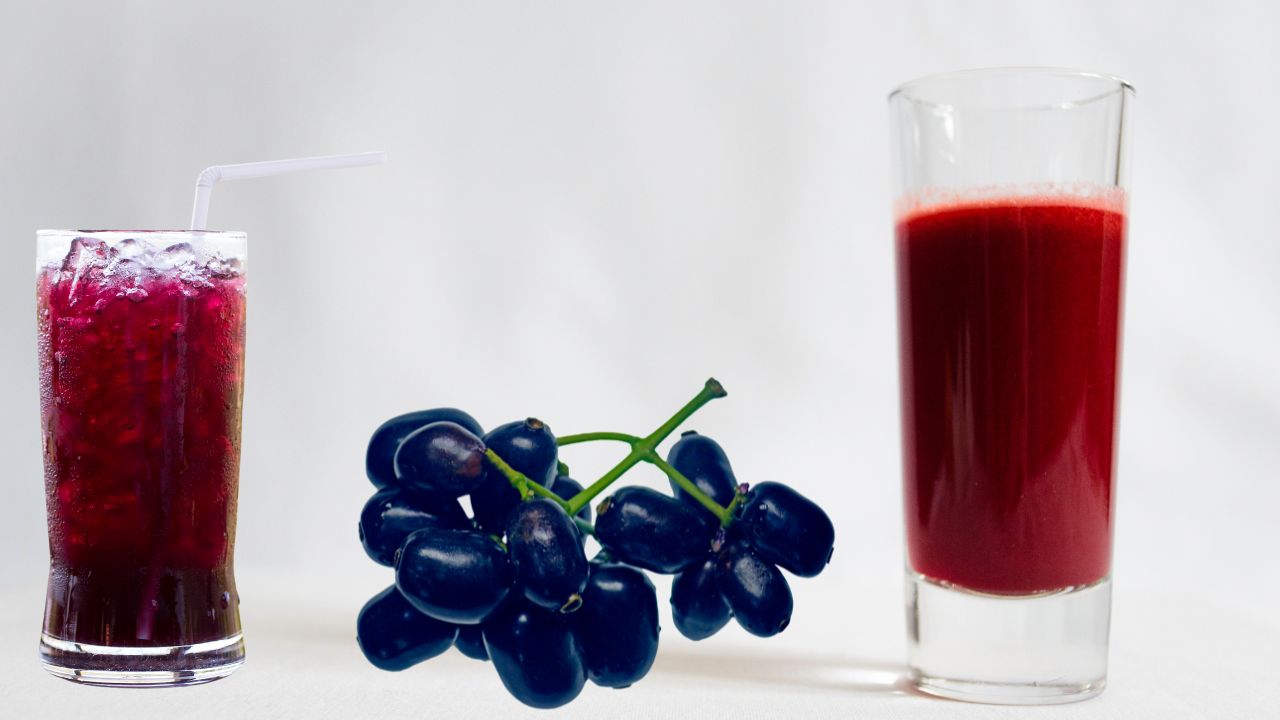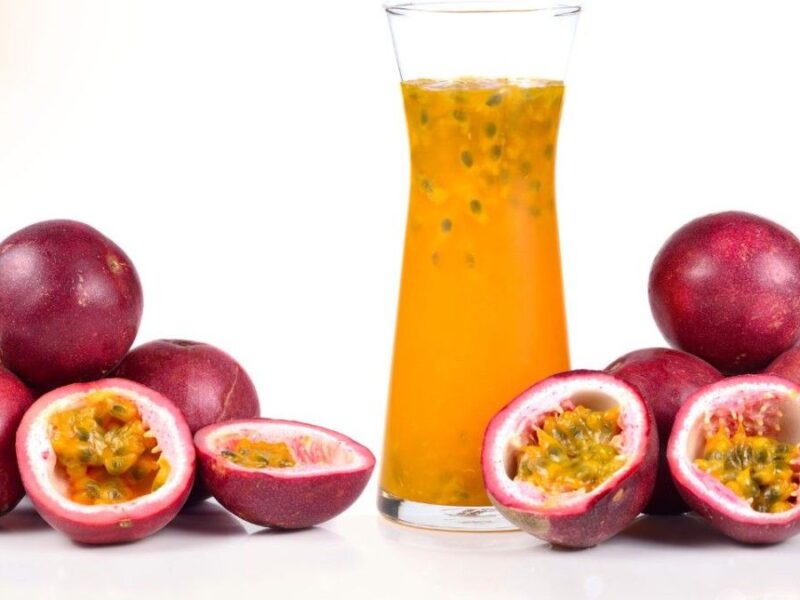Jamun fruit juice benefits
Ever heard of Jamun? This delicious purple fruit, black or Java plum, isn’t just tasty. Jamun Juice Benefits You Need to Know (with Recipe!). It’s packed with health benefits! Jamun juice is a refreshing way to enjoy its goodness. In this guide, we’ll walk you through how to make jamun juice at home, explore its excellent benefits for your health, and even take a peek at the nutritional information. So, get ready to unlock the power of jamun and whip up a healthy, delicious drink!
What is a jamun fruit?
Have you ever seen a fruit that stains your tongue purple? That’s the fun part of enjoying a jamun! This small, juicy fruit grows on tall trees like India and Southeast Asia. It’s like a tiny plum, with dark purple or black skin on the outside and a sweet-tart flavor inside. Jamun is a summertime treat, but it’s also known for having some health benefits. Let’s explore the world of this unique fruit!
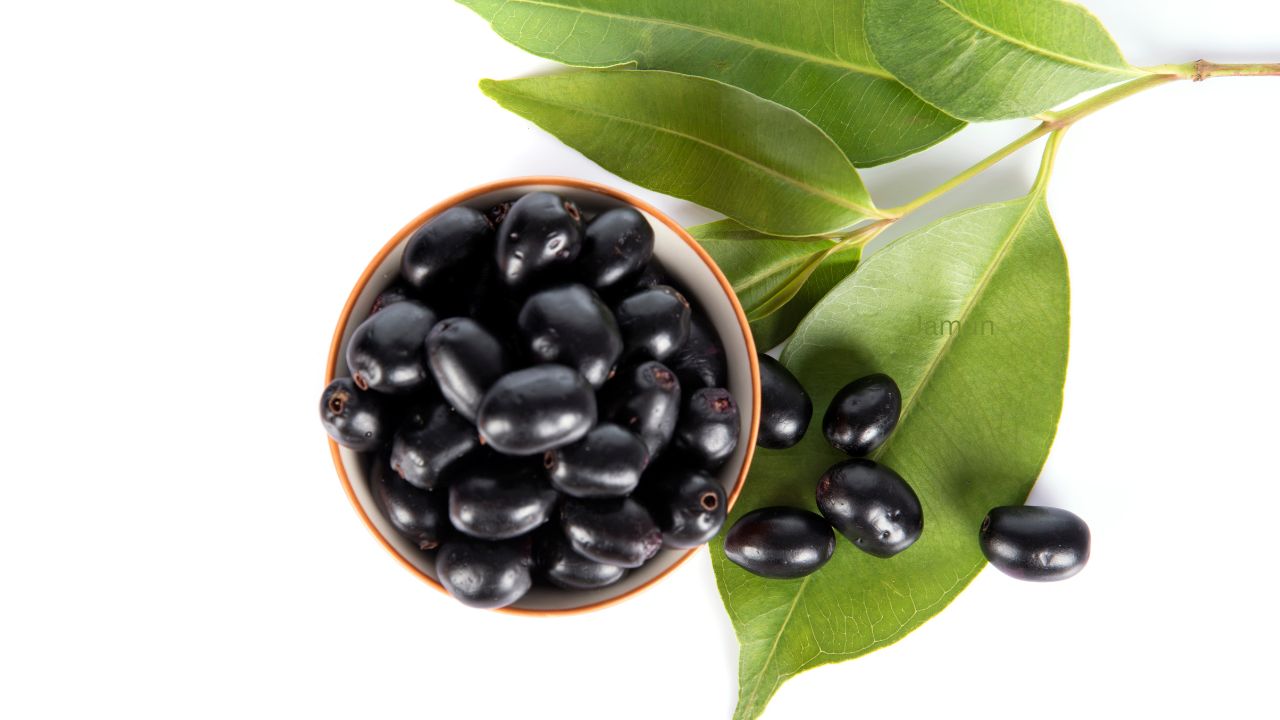
Jamun fruit, 1 kg price
The price of 1 kg of jamun fruit can vary depending on a few things:
- Location: In Hyderabad, where you are right now, jamun prices are between ₹100 and ₹250 per kilogram [source].
- Quality: Ripe, fresh jamun with good color and size will cost more than smaller or not fully ripe ones.
- Where you buy it: Grocery stores might charge a bit more than buying from street vendors.
So, as a rough estimate, expect to pay between ₹100 and ₹250 for 1kg of Jamun in Hyderabad. It’s always a good idea to shop around a bit to find the best price!
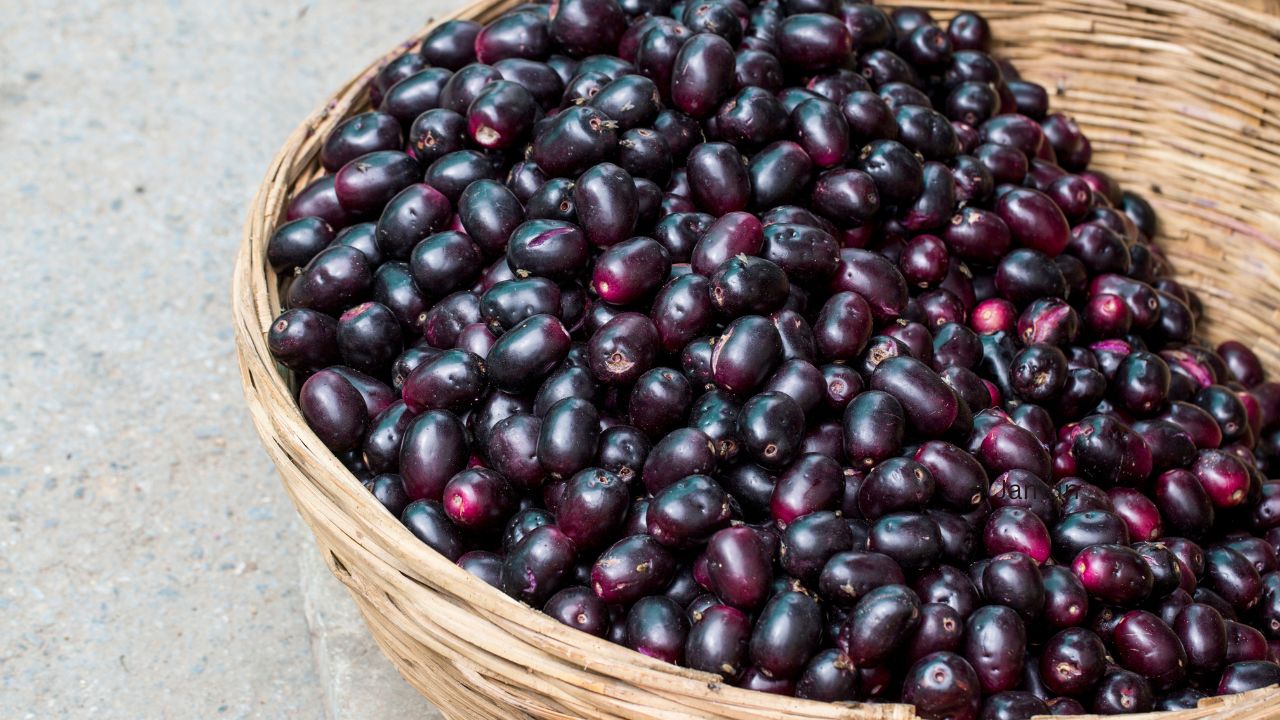
Benefits of Jamun fruit juice
- Blood Sugar Buster: Jamun juice has been traditionally used to manage diabetes. Early studies suggest it might help regulate blood sugar levels.
- Digestive Delight: Jamun juice is high in fiber, which can keep your digestive system running smoothly and help with constipation.
- Antioxidant Powerhouse: Jamun’s abundant antioxidant content combats free radicals in your body, which may lessen inflammation and delay the aging process.
- Immunity Booster: Vitamin C and other nutrients in jamun juice can help bolster your immunity and stave against diseases.
- Weight Management Aid: Jamun juice is high in fiber and low in calories, so it may help you feel fuller for longer periods, which may support your weight management efforts.
- Healthy Heart Helper: Jamun juice might contribute to heart health thanks to its potassium content, which can help regulate blood pressure.
- Radiant Skin Friend: The antioxidants in jamun juice may promote healthy, glowing skin.
- Oral Health Ally: Jamun leaves have antibacterial properties; some believe consuming jamun juice can benefit oral health.
- Gut Health Soother: Jamun juice might help soothe digestive issues like diarrhea or ulcers.
- Energy Booster: Rich in potassium and antioxidants, jamun juice can boost your natural energy.
- Weight Loss Support: Jamun juice can help you feel full for longer, potentially aiding in weight management.
- Blood Purifier: Jamun has been used in traditional medicine to help purify the blood.
- Respiratory Relief: Early studies suggest jamun might offer some relief from respiratory issues like asthma.
- Improved Iron Absorption: Jamun juice might help with iron absorption, potentially aiding those with iron deficiency.
- Fights Infections: Jamun’s potential antibacterial properties might help fight off infections.
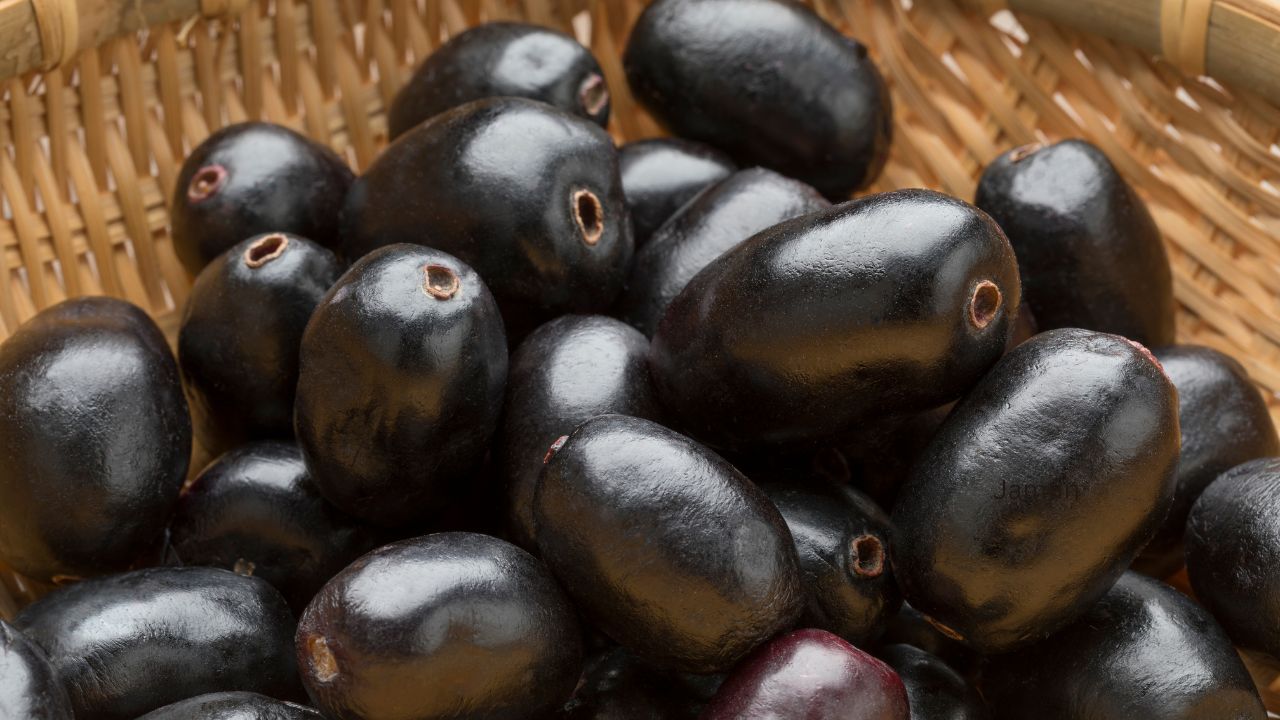
Remember:
While jamun juice offers potential benefits, it’s not a magic cure. Consult your doctor before making significant dietary changes, especially if you have underlying health conditions. Jamun Juice Benefits You Need to Know (with Recipe!)
Jamun fruit juice recipe
Ingredients:
- 1 kg Ripe Jamun Fruits (around 3 cups)
- 2-3 cups Water
- Sugar or Honey (to taste)
- Pinch of Black Salt (optional)
- Ice Cubes (for serving)
Instructions:
- Wash the Jamun: Rinse the Jamun fruits thoroughly under running water.
- De-seed the Jamun (optional): Jamun has a single large seed in the centre. You can remove it for a smoother juice, but it’s not essential. Here are two methods:
- Method 1: Using a sharp knife, carefully cut each jamun in half and remove the seed.
- Method 2 (without cutting): If you don’t mind some pulp, smash the whole jamuns with your hands or a rolling pin to break them open.
- Blend it Up: Add the jamun (seeds removed or whole) to a blender with 2 cups of Water. Blend until smooth.
- Strain (optional): To get a simpler juice, filter the mixture through a fine-mesh strainer.
- Adjust the Taste: Add sugar or Honey to taste, depending on how tart the jamun is. You can also add a pinch of black salt for a savory kick (optional).
- Chill and Serve: Pour the juice into glasses and add ice cubes for a refreshing drink.
Tips:
- If the juice is too thick, add more Water to thin it out.
- Don’t throw away the jamun pulp! You can use it to make jams and jellies or even add it to yogurt for a nutritious boost.
- Jamun juice is best enjoyed fresh, but you can store it in the refrigerator for up to a day in an airtight container.
Enjoy your delicious and healthy homemade jamun juice! Jamun Juice Benefits You Need to Know (with Recipe!)
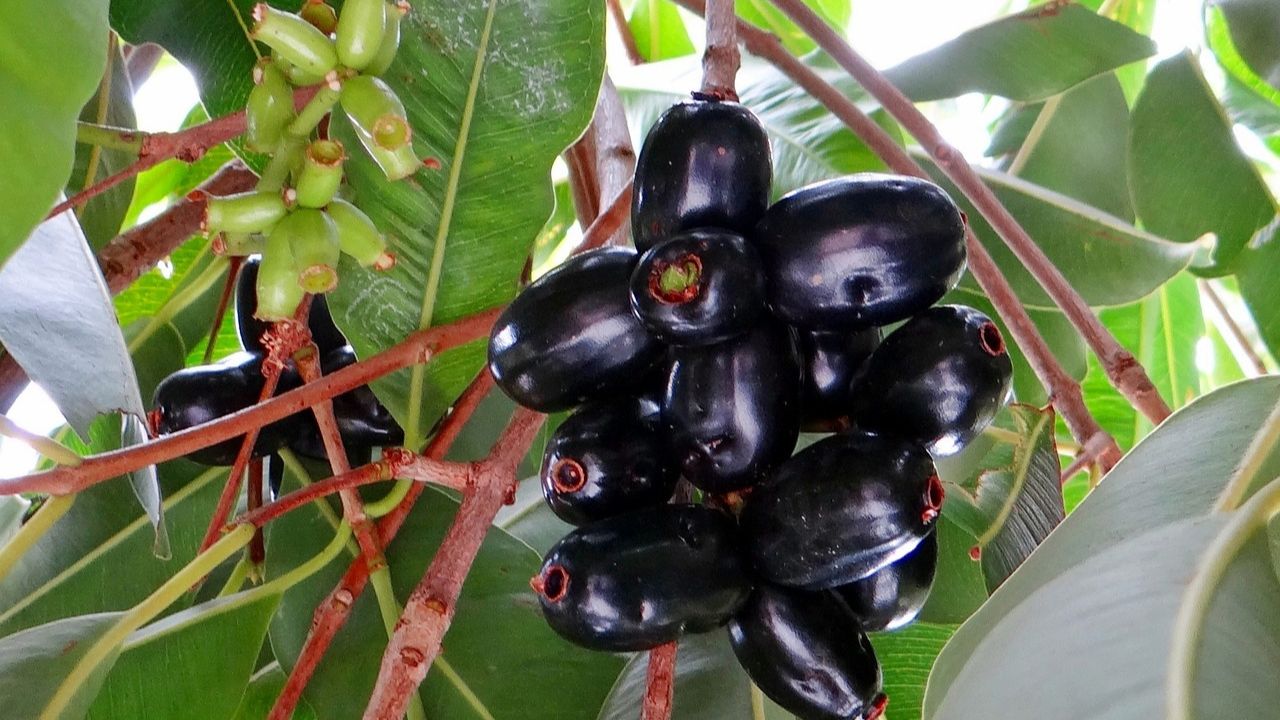
Jamun nutritional value per 100 ml
Here’s the approximate nutritional information for 100ml of jamun fruit juice:
- Calories: 44 kcal (low in calories)
- Protein: 0 g (no protein)
- Carbohydrates: 11 g (mostly natural sugars from the fruit)
- Fat: 0 g (almost no fat)
- Fiber: Some dietary fiber is present, but the exact amount can vary.
- Vitamins: A good source of Vitamin C, which helps with immunity.
- Minerals: They may contain small amounts of minerals like potassium, calcium, and iron.
Important Notes:
- These are estimates and can vary depending on the ripeness of the jamun and how the juice is processed.
- Jamun juice is naturally low in calories and fat, making it a refreshing and healthy drink option.
- Adding sugar or Honey to your juice will increase the calorie content.
- Jamun juice is a good source of vitamin C but may not be a significant source of other vitamins and minerals.
FAQS
Can we drink jamun juice daily?
Jamun juice is generally safe to drink daily, but moderation is key. While it benefits, too much sugar (if added) or fiber (from the fruit) could cause digestive issues. Consult your doctor if you have any underlying health conditions before making jamun juice a regular diet.
How much jamun per day?
There is more than just a one-size-fits-all amount for Jamun. A moderate serving is generally safe. This could be around 100 grams of fruit (roughly 3–4 small fruits) or 100–200 ml of juice. It’s always best to consult your doctor for personalized advice, especially if you have any underlying health conditions.
Does Jamun increase haemoglobin?
Jamun might be a buddy for your blood! It contains iron, which helps build haemoglobin, the red blood cell protein that carries oxygen. Early studies suggest jamun could be helpful, but consult your doctor for personalized advice, especially if you have concerns about low haemoglobin.
Is Jamun good for BP?
Jamun might be a friend to your blood pressure! It contains potassium, which helps regulate blood pressure. Early studies suggest it might help manage blood sugar, another factor in healthy blood pressure. However, talk to your doctor before making significant dietary changes for BP control.
Is jamun good for the kidneys?
Jamun juice offers some benefits for kidney health. It might help flush toxins and regulate blood pressure. However, jamun is also high in potassium. If you have kidney problems, consult your doctor before consuming jamun juice, as too much potassium can be harmful.
Read More
Noni Juice Benefits You Won’t Believe (with Recipe)
Falsa Juice Benefits Explained (with Recipe)
Mix Fruit Juice Benefits You Didn’t Know About (Recipes Included)
Is Papaya Juice a Superfood Recipe & Benefits to Surprise You
